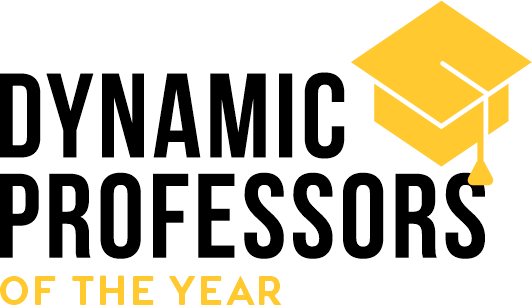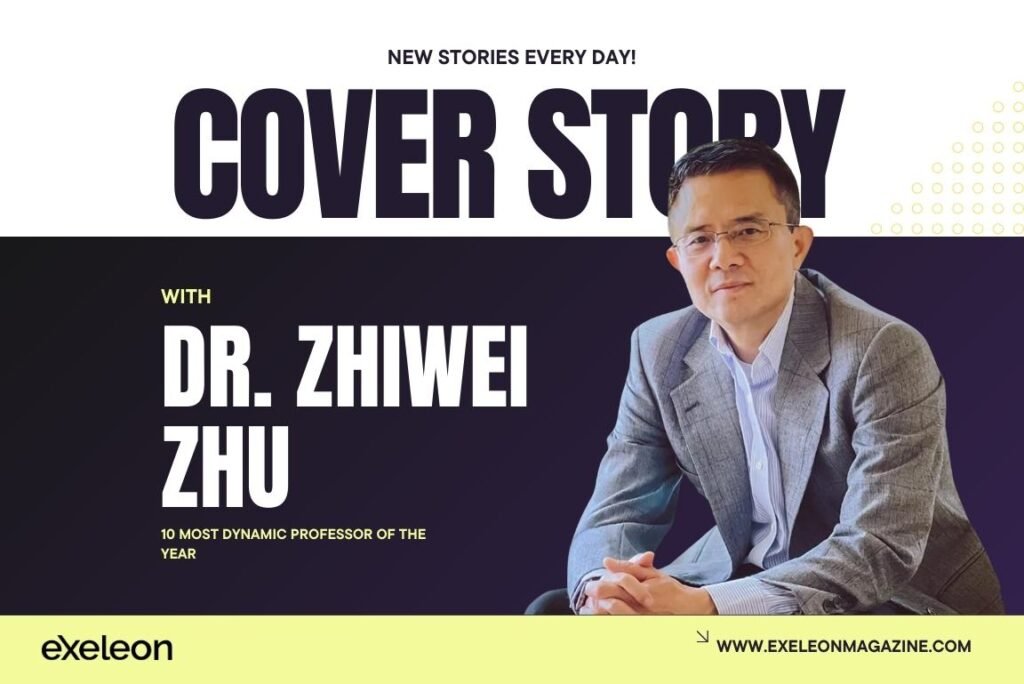In an era where industries evolve faster than most curricula can keep up, the need for academic leaders who are both visionary and grounded in real-world experience has never been more urgent. Enter Dr. Zhiwei Zhu, the Academic Director of the Business Analytics and Information Management (BAIM) program at Purdue University and a 2023 honoree by Poets & Quants as one of the “Best Undergraduate Professors.”
Dr. Zhu’s journey isn’t a conventional one. After earning his Ph.D. in statistics, he took a turn away from the ivory tower and into the high-stakes world of corporate analytics. Over the course of more than 15 years, he held senior executive roles at global insurance giants like Swiss Re, SCOR, and Assurant. But in a career defined by transformation and data-driven decision-making, his most pivotal move came when he returned to academia with a renewed mission: to reimagine how future analysts are trained.
“It wasn’t an obvious path,” he reflects. “But something was calling—a deeper desire to share, mentor, and give back.”
Reimagining Relevance
At the core of Dr. Zhu’s approach is a commitment to dynamic alignment with industry demands. As Academic Director of Purdue’s four-year undergraduate Business Analytics and Information Management (BAIM) program, which currently serves more than 700 on-campus students, Dr. Zhu is continuously benchmarking course content against market shifts.
“We ask ourselves: Are we preparing students for what tomorrow demands, not just today?” he says.
This question led to a sweeping transformation of the program’s structure. Under Dr. Zhu’s leadership, the BAIM team is actively developing an evolving Experiential Education (ExEd) portfolio designed to offer students a range of credit-bearing, hands-on learning opportunities. As the portfolio continues to grow, it includes options such as industry-sponsored projects, internships, consulting engagements, to student-run business initiatives and analytics competitions.
“Each experience is carefully vetted to ensure alignment with defined learning outcomes and real-world relevance,” Dr. Zhu explains.
It’s an ambitious and holistic model—and one that reflects Dr. Zhu’s broader pedagogical vision. These structured, hands-on engagements not only allow students to build technical proficiency but also challenge them to navigate ambiguity and work collaboratively in complex environments.
“Experiential learning is not just about doing,” Dr. Zhu elaborates. “It’s about reflecting on what you did, connecting it to broader knowledge, and applying it in new, unforeseen situations.”
The 3Cs of Career Competency
Dr. Zhu insists that technical skills alone is no longer enough in today’s job market. Instead, he embeds what he calls the “3Cs” of career competency into every course he teaches: Comprehension, Collaboration, and Communication.
“These core skills,” he explains, “ensure that students don’t just learn technical tools—they also develop the ability to think critically, communicate effectively, and appreciate the value of teamwork.”
The emphasis on soft skills is intentional. Dr. Zhu believes the best analytics professionals can bridge the technical and human realms. His course designs reflect this blend by encouraging students to explain complex ideas clearly, work across functions, and think ethically about the consequences of their decisions.
His own teaching philosophy mirrors this balance. “Teaching isn’t about delivering answers,” he says. “It’s about cultivating a mindset of inquiry, inspiring continuous growth, and empowering future professionals to keep evolving.”
This mindset has not gone unnoticed. In 2023, Poets & Quants recognized Dr. Zhu as one of the year’s top undergraduate professors, a reflection of both his classroom innovation and student impact.
Business Data Mining: The Favorite Lab
Among the many courses he teaches, Business Data Mining holds a special place in Dr. Zhu’s heart.
“It’s where analytics becomes tangible for students,” he says. “It’s also where they often feel most empowered by their learning.”
To keep the content engaging year after year, Dr. Zhu updates his curriculum in real time to reflect trends like Generative AI and ethical data usage. Course assignments mirror real-world developments in fields such as marketing analytics and consumer behavior.
Moreover, Dr. Zhu incorporates experiential components like live case studies, simulated consulting projects, and student-led presentations to bridge the gap between technical proficiency and business application. “Students must learn to answer the critical ‘so what?’—a question every analytics professional must be ready to address.”
His students are also exposed to competitive, team-based projects, helping them build the resilience and collaboration skills demanded in high-performing business environments. “Every data point has a story,” Dr. Zhu says. “Our job is to extract that story and deliver it in a way that drives intelligent decision-making.”
From Boardroom to Classroom
Dr. Zhu’s executive experience gives him a unique lens through which to guide his students. In the corporate world, he led analytics teams and strategic data initiatives. Today, those experiences shape both his pedagogy and his mentorship.
“It’s not enough to perform regression or clustering,” he explains. “Students must learn when to apply these tools, how to communicate insights to decision-makers, and what trade-offs exist in real-world deployment.”
This real-world context extends beyond the lecture hall. Dr. Zhu mentors student-led organizations as if they were actual businesses—challenging students to build strategic plans, define KPIs, and engage stakeholders. These simulations mimic executive environments and offer students a unique glimpse into professional realities.
“My goal is to help students grow into not only capable analysts,” he says, “but also thoughtful leaders who can influence meaningful change through data.”
Anticipating the Future of Analytics
When asked about the future of analytics education, Dr. Zhu is clear-eyed and expansive. He identifies three critical fronts for educators to prioritize:
- Human-Centric AI Literacy: Students must understand AI’s societal and ethical implications, not just its technical structure.
- Generative AI Integration: With the rise of multimodal data, educators need to prepare students for analysis that goes beyond numbers to include language, image, and audio.
- Cross-Disciplinary Fluency: The future lies at the intersection of disciplines. Programs must integrate analytics, computing, business, ethics, and communication.
Dr. Zhu’s own research—including contributions to Harvard Data Science Review and INFORMS Analytics journals—has explored the rapidly evolving role of Data Science and Generative AI, and their implications for the future of analytics education and training..
“Cross-disciplinary offerings aren’t optional anymore,” he insists. “They are vital.”
Teaching as a Bridge, Not as a Platform
Dr. Zhu’s academic journey is more than a career path; it’s a mission. After receiving a Fulbright U.S. Scholar grant in 2024, he spent time collaborating with business schools across Europe, exchanging ideas and developing curricula that bridge cultures and disciplines.
“That experience deepened my commitment to education as a bridge—between industries, cultures, and generations.”
He’s also channeling that vision into a textbook, “From Data to Decisions: The Past, Present, and Future of Analytics in the Age of AI, which distills his professional and academic insights into an accessible, student-friendly framework. It provides a foundation for students not just to learn analytics, but to apply it in service of strategic, ethical, and data-informed leadership.
“The classroom isn’t just a space for transfer of knowledge,” he says. “It’s a launchpad for the next generation of thinkers and doers.”
A Passion for Precision and Pastry?
Though known for his analytical rigor and pedagogical innovation, there’s a lighter side to Dr. Zhu that might surprise many. On weekends, he enjoys experimenting in the kitchen, blending Eastern and Western flavors in creative recipes.
“Cooking—like teaching—is about balance,” he smiles. “It’s where structure meets creativity. It’s also one of the few places where I can lose myself in the process and enjoy immediate feedback—sometimes brutally honest!—from family and friends.”
It’s a metaphor that suits him well. Whether in the kitchen or the classroom, Dr. Zhu is always crafting experiences that nourish the mind, expand the imagination, and push boundaries.
A Legacy in Motion
As the landscape of data science and AI shifts beneath our feet, leaders like Dr. Zhiwei Zhu ensure that the next generation doesn’t just keep up—they lead.
Through innovative teaching, real-world integration, and a commitment to ethical, cross-disciplinary fluency, he is redefining what it means to be a professor in the 21st century.
“The impact I can make as an educator,” he says, “echoes far beyond what I could accomplish in a company.”
Read Digital Version of this Issue.
Follow Dr. Zhiwei Zhu on LinkedIn.











